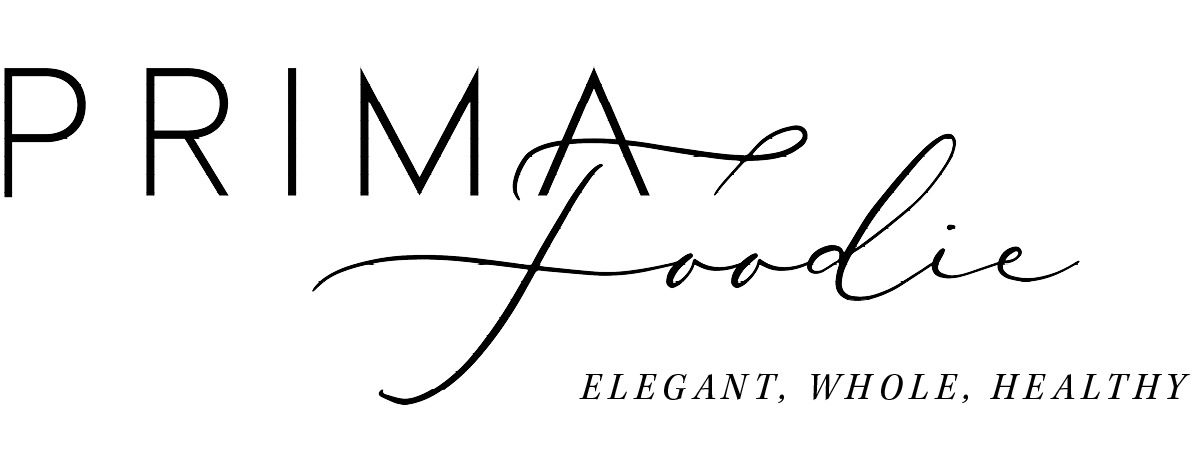The 4 Healthy Kitchen Essentials to Always Keep Stocked—According to a Functional Nutritionist
As a functional nutritionist, Alanna DeSalvo knows a thing or two about cooking healthy, nutrient-dense meals at home. Yet still, DeSalvo admits it’s not always easy. “Everything is so busy nowadays,” DeSalvo tells us. “It's hard for me to even prep meals at times.” Therefore, DeSalvo believes in setting up her clients for cooking success—i.e. making it easy to create simple, clean meals without copious ingredients or time. The place to start is stocking clean pantry and freezer staples.
We asked DeSalvo where to start. Here she walks us through the kitchen staples she always keeps on hand and why. Because when you have ingredients to work with, you’re more likely to get in the kitchen—which she says is most important. “One of my main beliefs is that cooking is nutrition and action,” DeSalvo adds. “The more you can get into your kitchen, even just throwing something easy together with what you have in the pantry or the freezer, it can make a difference in your health and how you feel at the end of the day.”
4 Pantry and Freezer Staples to Keep on Hand
Healthy Fats
From oils to nuts to ghee, DeSalvo believes in keeping healthy fats on hand for cooking, as well as for adding nutrients to salads and other dishes. She recommends having two to three clean oils on hand, her favorites being olive oil, avocado oil, and ghee. Be mindful of how you’re using them, she says, as different oils have varying smoke points. She also recommends nuts and nut butter, which are a great “healthy fat and that helps keep blood sugar stable.”
Clean Easy Proteins
This included sustainable canned or frozen fish, organic jerky, and beans. “These are all ideal for putting together a nourishing meal quickly,” she says. Look for options that you can keep in your pantry or the freezer.
“Pantry Vegetables”
Fresh is always ideal when it comes to produce but sometimes it’s not an option. For this reason, DeSalvo recommends stocking what she calls “pantry vegetables”—things like jarred or canned olives, artichokes, capers (which she says are high in antioxidants), and tomatoes. “If your fridge is empty, you can pull these from your cabinet and just add this to a meal for extra antioxidants and nutrients.”
Healthy Sauces and Spices
Part of what makes food good for us is the pleasure factor. So a quick meal doesn’t need to lack flavor and interest. DeSalvo says to keep clean sauces and spices on hand to add to a dish. This includes a quick stir fry sauce, teriyaki sauces, a good quality tomato sauce, fresh dried herbs, and spices. “Not only do they add lots of flavors, which is important to enjoying a meal, but also herbs and spices have a lot of antioxidant properties. Even a pinch of freshly cracked black pepper can boost the nutrient density of your meal.”
Tips for Sourcing the Best Pantry and Freezer Staples
Not every pantry staple is a healthy one. To ensure you’re stocking your shelves healthily, DeSalvo recommends following these guidelines:
Always read the ingredients label. “Look for whole food ingredients. If you see something that you wouldn’t put in the recipe yourself, look for one that is more aligned with what you would make in your kitchen.”
Beware of hidden sugars. “They're hidden in everything, including sauces and nut butters,” says DeSalvo. Read the labels and opt for options without added sugars.
Aim for organic. “At least, as much as possible,” she adds.
Understand your packaging. BPAs and other toxins in canned food packaging are still ubiquitous. “When your food is sitting in that for a long time and the BPAs leach to your food, that can mess with hormones and create inflammation,” DeSalvo warns. Look for packaging that is non-BPA or—even better—in a box.


